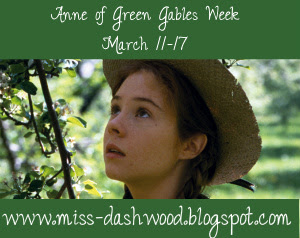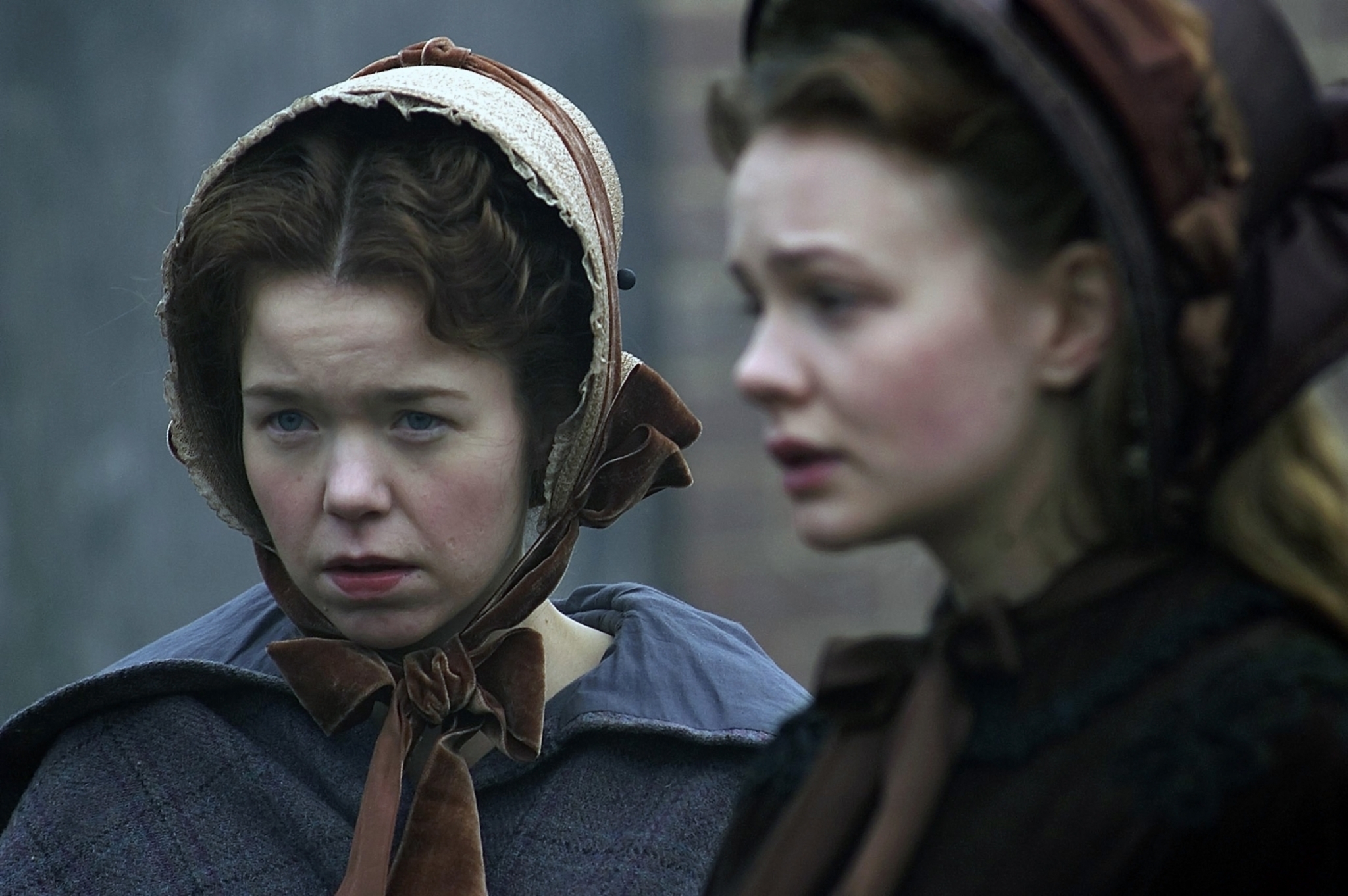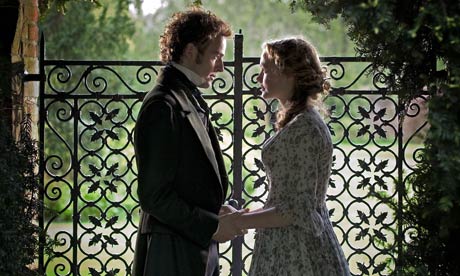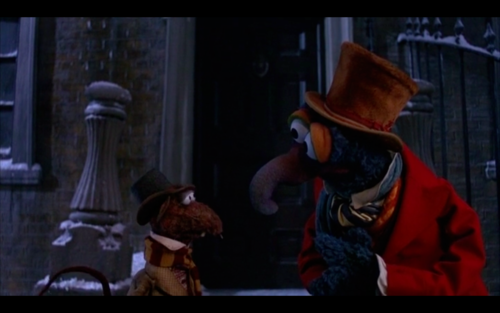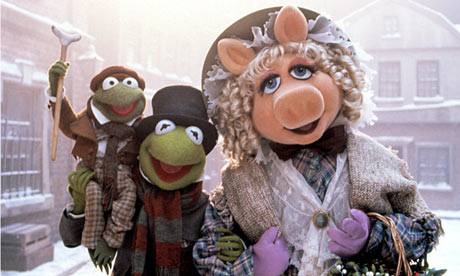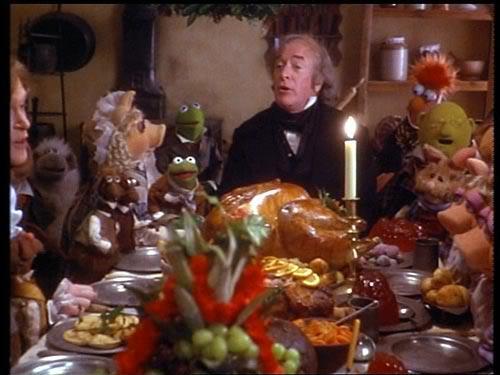We've said it over and over and over again. Whether we're arguing about characters in Les Miserables, vehemently discussing Edward Ferrars' hero qualifications or simply laughing over a funny scene in Pride and Prejudice, this phrase keeps cropping up when I talk at length with my sister Anne-girl: "We are so Elinor and Marianne!"
In case you're wondering, we mean that I'm Elinor and she's Marianne. She's the uber-excitable one, the one whose sorrows and joys can have no moderation. I'm the one who generally yanks her down out of the clouds and offers practicality when she flies up on the wings of inspiration. (We are best friends, however. Let's set the record straight from the beginning.) She's the emotional one, and I'm the other emotional one. (Heh.) Although, in all seriousness, she's much more emotional than I am. In general.
Why am I blabbing on and on about my sister and myself when this post is really supposed to be about Elinor Dashwood?
Well, you see, I call myself Elinor Dashwood. I compare myself to Elinor Dashwood--of all Jane Austen's heroines, she's the one I identify with most. But really, I'm not as much like Elinor Dashwood as I'd like to be. In reality, I admire her and want to be like her more than I really am like her. (Hope that made sense. Sentence construction isn't my strong point.)
So, let's look at Elinor's good points (and bad points) in an organized and thoughtful manner. (Hah.)
First of all, Elinor is Unfailingly Patient. One of my favorite scenes in Sense and Sensibility (1995) is the one where all three other Dashwood women have fled to their rooms in tears, and poor Elinor is left alone on the stairs at Barton cottage with a cup of tea in her hand. She stands there for a moment, listening to the stormy sobs emanating from behind the various closed doors, then philosophically sits down on the stairs and drinks the tea so as not to waste it.
 |
| (via) |
Elinor's patience comes in handy when the Miss Steeles enter the story. Anne "Nancy" Steele is annoying but funny--Lucy, her younger sister, is malevolent, manipulative, malicious and mean. (Miss Dashwood likes alliteration.) I still haven't figured out how Elinor managed to go for more than ten minutes without landing a Fanny-Dorrit-esque high kick right in Lucy's silly simpering face. Grrrrrr.
Not only does Lucy tell Elinor about her secret engagement to Edward for the SOLE PURPOSE of making Elinor feel bad, she swears Elinor to secrecy on the subject (even though Diana Barry will tell you that it's dreadfully wicked to swear). This gives Lucy negative eighteen thousand Miss Dashwood points, because everybody knows that the best part of being told a secret is being able to tell it to somebody else. (What are sisters for, anyway? Other than borrowing and lending clothes, I mean?) I hate Lucy Steele.
But I'm not here to talk about Goosey Lucy. Nor am I here to hurl rotten fruit at the lady I just mentioned. I'm here to talk about the honorable Elinor Dashwood, and when I say honorable I'm not just being fake-ly formal. Elinor is the soul of honor. (Did I really just type "honorability" and then sit there for a minute wondering why it looked wrong? No, of course I didn't.) Like another person in Sense and Sensibility whom I could mention (hint: he doesn't appreciate poetry, his name begins with an E and ends in DWARD and his last name begins with an F) Elinor does not let people down. Ever. Even when those people are not worthy of, say, John Thorpe's attention.
Elinor could have easily rationalized that the ends justified the means and then raced off to spill the dirt on Edward and Lucy to Marianne. She could have told herself that Lucy wasn't worth making promises to. But she didn't--she kept her word even when it was little more than mental torture to have to do so.
Of course, all this honor and discretion and ability to keep her lips zipped doesn't mean that Elinor doesn't have feelings. It just means that she is mature enough to conceal her feelings. Unlike Marianne, Elinor didn't fling herself down on her bed, cry uncontrollably and refuse even olives when she realized that Edward was betrothed to another woman. (And all you Marianne fans out there--please, please don't get mad. I am one of you. I really am. But you will admit, I hope, that Marianne's behavior was over-the-top at times.)
If you still don't think that Elinor feels deeply, go to the top of this post and read the beginning quote again.
Now, back to the whole honor thing. Honor and honesty go hand-in-hand, and Elinor is unfailingly honest. Except, of course, when Good Manners require her to be otherwise. "It was impossible for [Marianne] to say what she did not feel, however trivial the occasion; and upon Elinor therefore the whole task of telling lies when politeness required it, always fell." ~chapter 21
Whoever said Sense and Sensibility wasn't funny? Eat your words!
We'll talk a little bit more about humor in a minute, but first I want to say just one more thing about honesty. Elinor possesses a skill that I desperately want to cultivate: namely, she tells the truth, but not when it isn't necessary. I don't mean that she lies. I mean that she doesn't just bluntly say things that are true-but-not-nice. She holds her tongue. She speaks with discretion. Like the Proverbs 31 woman, Elinor opens her mouth with wisdom, and in her tongue is the law of kindness. Elinor thinks before she speaks and doesn't say things without pondering them first. It's a habit we'd all (yours truly in particular) do well to emulate.
Now, about Elinor's sense of humor--frankly, I think anyone who says Elinor has no sense of humor needs to go read the book again. Or at least watch the 1995 film. (Can't vouch for the 2008 miniseries, but Melody is slowly and surely persuading me to see it, so maybe someday I'll have an opinion to offer.)
"Now there is no one to regard [the leaves at Norland]. They are seen only as a nuisance, swept hastily off, and driven as much as possible from the sight," [said Marianne.]
"It is not every one," said Elinor [to Marianne], "who has your passion for dead leaves."
~chapter 16
Consider, too, one of my favorite lines in the movie:
Marianne: When is a man to be safe from such wit, if age and infirmity do not protect him?
Mrs. Dashwood: "Infirmity"?
Elinor: Do you call Colonel Brandon infirm?
Mrs. Dashwood: If Colonel Brandon is infirm, than I am at death’s door.
Elinor: It is a miracle your life has extended thus far.
Oh, and then of course there's this:
Elinor: Marianne, you must change your clothes or you will catch a cold.
Marianne: What care I for colds when there is such a man?
Elinor: You will care very much when your nose swells up.
Practicality is an important character quality, after all. Sure, it sounds boring, but somebody has to add up the household accounts and tell the hired man not to buy expensive groceries. ("Do you want us to starve to death?" "No. Just not to eat beef.")
Okay, enough rambling. My sister Molly (who enjoys the videos on my blog immensely) is probably clamoring by now for Elinor's Best Scene, so here you go. The scene of which I speak takes place from 3:18 to 6:05.
Ultimately, Elinor cares about other people more than she does about herself--and that's the most admirable thing about her. That's what I most want to emulate in Elinor's character.
That, and Emma Thompson's hair. Those braided buns are absolutely gorgeous.















